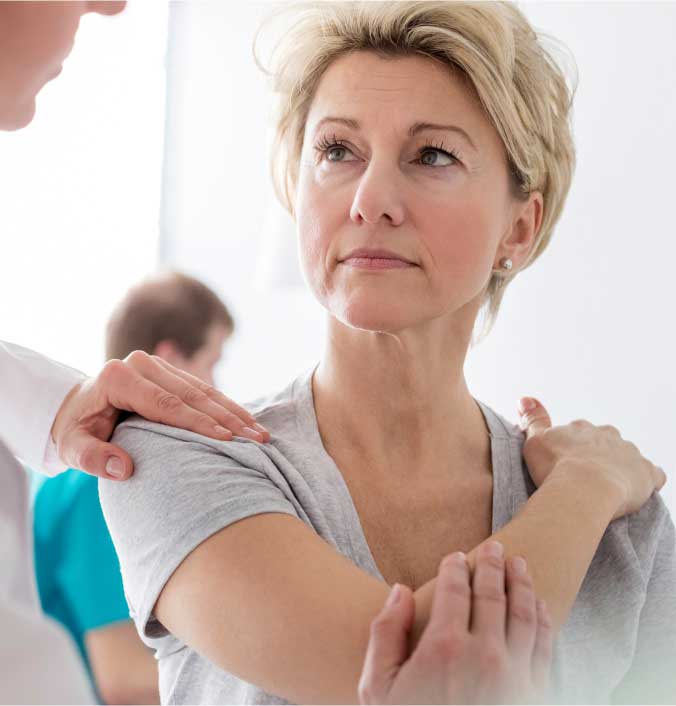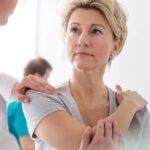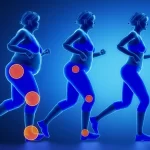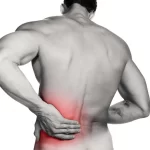Orthopedic health is vital for everyone, but women face unique challenges and considerations in this area. Orthopedic health is a vital aspect of overall well-being, and women have unique considerations in this regard. At Dr. Tonde’s Neuro & Ortho Clinic, led by renowned Orthopedic Surgeon Dr. Priyanka Tonde, we understand the importance of addressing women’s orthopedic health comprehensively. In this blog, we’ll explore the distinct challenges women may face concerning orthopedic health, along with preventive measures to maintain strong and pain-free musculoskeletal systems.
Orthopedic Clinic in Aundh
Before we delve into the specifics of women’s orthopedic health, it’s essential to know that you can access top-notch orthopedic care at our clinic, conveniently located in Aundh. Dr. Priyanka Tonde, our skilled orthopedic surgeon, and her team are dedicated to providing expert orthopedic services tailored to your unique needs.
Hormonal Changes and Orthopedic Health
- Osteoporosis:Women are at a higher risk of developing osteoporosis due to hormonal changes, especially after menopause. Osteoporosis weakens bones, making them more susceptible to fractures. Regular bone density screenings and appropriate supplements can help prevent this condition.
- Joint Health:Hormonal fluctuations can affect joint health, potentially leading to conditions like rheumatoid arthritis. Early diagnosis and intervention are critical in managing such conditions.
- Athletic Considerations for WomenActive women, whether professional athletes or fitness enthusiasts, may encounter orthopedic challenges unique to their gender. Issues like anterior cruciate ligament (ACL) injuries are more common in female athletes. Dr. Tonde recommends proper warm-up, conditioning exercises, and sports-specific training to reduce the risk of such injuries.
Menopause and Joint Pain
Menopause brings hormonal changes that can affect joint health. Women may experience joint pain, stiffness, and a higher risk of conditions like osteoarthritis. Dr. Tonde, a respected Orthopedic Surgeon in Wakad, emphasizes the importance of maintaining a healthy weight, staying physically active, and exploring hormone therapy options with a healthcare provider when appropriate.
Ergonomics and Workplace Health
Many women spend significant time in office environments that may not be ergonomically designed. This can lead to musculoskeletal issues, including neck and back pain. Dr. Tonde’s team advises women to ensure their workstations are ergonomic and to take regular breaks to stretch and move.
Orthopedic Concerns During Pregnancy
- Back Pain:Pregnancy places significant strain on the spine, often causing back pain. Simple exercises and ergonomic adjustments can alleviate discomfort.
- Carpal Tunnel Syndrome:Fluid retention during pregnancy can compress the median nerve, resulting in carpal tunnel syndrome. Proper wrist support and exercises can help.
Preventive Measures for Women’s Orthopedic Health
- 1. Exercise Regularly: Engaging in regular physical activity is essential for maintaining strong muscles and healthy joints. Weight-bearing exercises like walking, running, and strength training help improve bone density and reduce the risk of osteoporosis. Aim for at least 150 minutes of moderate-intensity exercise per week.2. Maintain a Healthy Weight: Carrying excess weight places additional stress on the joints, particularly in the hips, knees, and spine. Maintaining a healthy weight through a balanced diet and regular exercise can help prevent orthopedic problems and reduce the risk of osteoarthritis.
3. Practice Good Posture: Proper posture is vital for preventing back, neck, and shoulder pain. Whether sitting at a desk or standing, maintaining good posture reduces strain on the spine and supporting muscles. Ergonomic workstations can also help maintain correct posture.
4. Pay Attention to Ergonomics: Ensure that your workplace, whether at home or in an office, is ergonomically designed. Use an ergonomic chair and keyboard setup to minimize the risk of developing musculoskeletal issues from extended periods of sitting.
5. Wear Proper Footwear: Choose comfortable and supportive footwear that fits well. High heels and ill-fitting shoes can contribute to foot, ankle, and lower back problems. Supportive shoes with cushioning can help reduce the risk of these issues.
6. Avoid Overuse Injuries: Women who participate in sports or regular exercise should be mindful of overuse injuries, such as stress fractures and tendonitis. Gradually increase the intensity of your workouts and incorporate rest days to allow your body to recover.
7. Prioritize Bone Health: Ensure an adequate intake of calcium and vitamin D through a balanced diet or supplements if necessary. These nutrients are essential for maintaining strong bones and reducing the risk of osteoporosis.
8. Practice Joint Safety: Protect your joints during physical activities and sports. Use proper techniques and equipment to reduce the risk of injury, and if you have any underlying joint conditions, consult a healthcare provider for guidance on exercise modifications.
9. Stay Hydrated: Proper hydration is essential for maintaining joint health. Water helps lubricate joints and cushion them during movement. Aim to drink an adequate amount of water throughout the day.
10. Listen to Your Body: Pay attention to any signs of discomfort or pain in your joints, muscles, or bones. Don’t ignore persistent pain or stiffness; consult with a healthcare provider or orthopedic specialist for a proper evaluation and diagnosis.
11. Hormonal Health: For women approaching menopause or experiencing hormonal changes, discuss potential joint and bone health concerns with a healthcare provider. Hormone replacement therapy may be considered in some cases.
Women’s orthopedic health is a lifelong journey that involves a combination of healthy lifestyle choices and preventive measures. By incorporating these strategies into your daily routine and seeking professional guidance when needed, you can reduce the risk of orthopedic issues and maintain a strong and active lifestyle. Remember that consulting with a healthcare provider or orthopedic specialist can provide personalized recommendations based on your unique needs and circumstances.
Conclusion
Women’s orthopedic health requires specific attention and preventive measures due to hormonal fluctuations and unique life stages such as pregnancy and menopause. Orthopedic health is a critical aspect of overall well-being. Dr. Priyanka Tonde and her team at Dr. Tonde’s Neuro & Ortho Clinic, the trusted Orthopedic Clinic in Bavdhan, and Wakad, are dedicated to providing specialized care and guidance for women facing orthopedic challenges. By staying informed and taking preventive measures, women can maintain strong and healthy musculoskeletal systems throughout their lives.
If you have concerns about your orthopedic health or need guidance on any orthopedic issue, don’t hesitate to schedule a consultation with Dr. Priyanka Tonde, your experienced Orthopedic Surgeon in Aundh. Your well-being is our priority and let’s ensure your musculoskeletal system remains strong and pain-free, no matter your age or stage in life.




